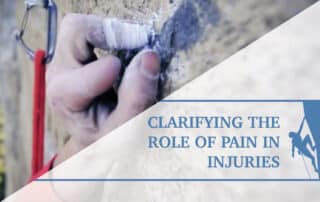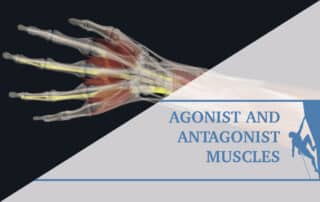Pulley Injuries Explained – Part 2
Pulleys are ligaments. A sprain/strain describes a stretch or partial tear of a ligament (“strain” is usually reserved for injuries to a muscle or tendon, but some of the literature mentions a strain of the pulley). A pulley rupture is a complete tear of the ligament, where no part of the tissue remains in contact with the other side. Now that you have an understanding of the terminology, let’s discuss specifics.
Self-Assessment and Rehab for a Climbing Hamstring Strain
The heel hook is a dynamic maneuver requiring flexibility, strength, and power to execute safely and effectively. The mechanism of injury and symptoms are rather typical when it comes to climbers that suffer hamstring strains.
Clarifying the Role of Pain in Injuries
It wasn’t that far ago that phantom limb pain was a complete mystery. This is a sensation that someone experiences in, say their finger, after it’s been amputated. The finger no longer exists yet the person can still feel it. This is possible because sensations, such as pain, are experiences created by both your body AND your mind.
Scapular Instability with Climbers
“Keep your arms straight and stay low!” This classic line is heard the world over for beginning climbers. Even if preventing the T-Rex arm is a quality way to fight off pump, this doesn’t tell the whole story of how we should be moving on the wall.
Quick Beta – Agonist and Antagonist Muscles
Have you ever read a blog post, or heard people talking in the gym, about muscle agonists/antagonists and wondered what they mean? I’d like to help you out with that. In this short blog post, I just want to bring your attention to some commonly used lingo to make you a more informed climber. [...]
Femoroacetabular Impingement Syndrome (FAI)
Do you have pain in the front of your hip or groin? Is sitting cross-legged or in low chairs uncomfortable? Is your hip pain worse following a climbing session? Have you noticed high-stepping or cross-over moves cause you pain? If yes, you may have Femoroacetabular Impingement Syndrome (FAI).






